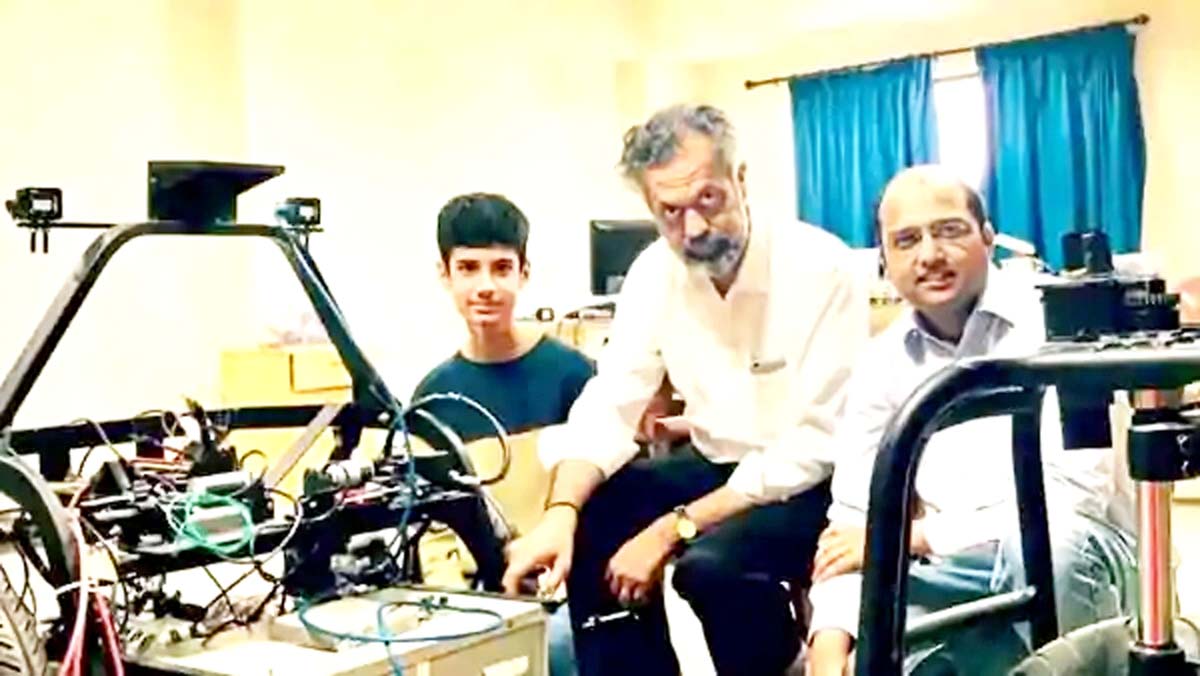Young entrepreneur from Jammu part of core team
Excelsior Correspondent
JAMMU, Apr 29: A startup that launched its first autonomous vehicle (AV) just before the virus outbreak, is now adapting it for hospital and getting enquiries for the same from foreign markets, including the US.
This autonomous vehicle is an electric drive train with electronic sensors, 3D LIDAR, on-board computing and the AI autonomy stack. It even has a suspension to withstand shocks on Indian roads and factory floors.
This three-year-old Bengaluru based Ati Motors startup has three co-founders. 55-year-old V Vinay is a former professor of Computer Science from Indian Institute of Science, while Saad Nasser is an 18-year-old prodigy who dropped out of Clarence High School when he was eight. The business fulcrum for the two tech wizards is entrepreneur from Jammu–Saurabh Chandra, in his early forties, who earlier sold his IT services company to a French multinational.
Three years down the line, they have an autonomous cargo vehicle called Sherpa, commercially deployed in a textile factory in Chennai. But the factory is shut like most of India during the coronavirus lockdown.
So, they built a smaller sibling of Sherpa, which will be deployed in a Bengaluru hospital next month. AVs are already delivering medicines to patients in a Guangdong provincial hospital in China to minimize contact.
The Sherpa’s technology, which is similar to what’s being developed for driverless cars by the likes of Tesla and Google, is more versatile than warehouse or humanoid robots. Its eye-level LIDAR (Light Detection and Ranging) processes more visual cues than the worm-hole view of robots or humanoids which are fine-tuned to work in specific settings. This enables the Sherpa, which rolls on automobile wheels, to go around inside a factory as well as outside in the yard or road.
A lockdown with empty roads seems like an ideal scenario to test driverless delivery of grocery and other essentials with autonomous vehicles like the Sherpa, which can carry a 150-kg load on its rear flatbed or haul 500kg in a trailer. Although such use cases are hard to pursue in India without regulatory support, grocery delivery in driverless vans is already happening in China and the US.
Most of Sherpa’s SLAM algorithms come from Vinay, who earlier left IISc with three colleagues to build the Simputer at the turn of the millennium. Saad Nasser was a 15-year-old when he became a co-founder of Ati Motors, but he was already an expert at putting complex systems together.
Sherpa’s rollout in a Chennai factory this year was a significant milestone, before coronavirus brought everything to an abrupt halt. However, the startup is getting enquiries from foreign markets, including California, and hopes to make a dent globally. Meanwhile, it will find its way in hospital corridors.
Trending Now
E-Paper


